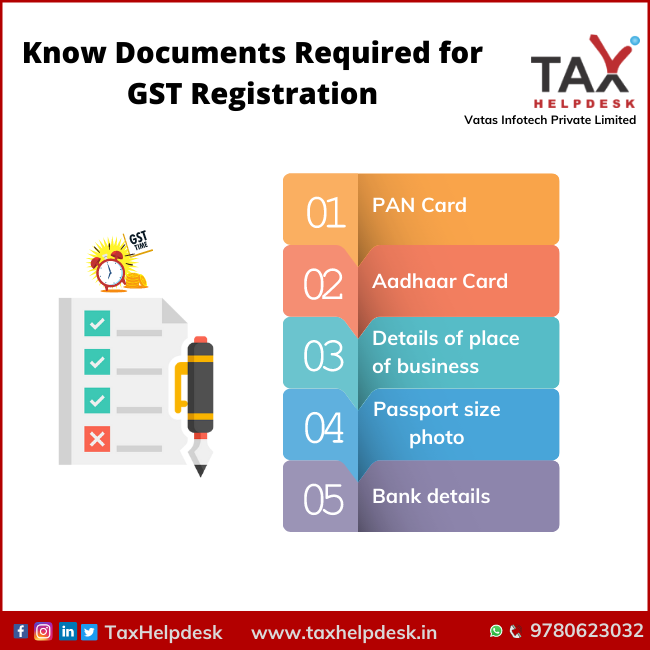Why Singapore GST Registration is Vital for Your Start-up
Why Singapore GST Registration is Vital for Your Start-up
Blog Article
Browsing the Complexities of GST Enrollment: Professional Tips and Best Practices for Smoother Conformity
From decoding enrollment demands to harnessing technical tools for structured processes, the trip in the direction of smoother GST compliance is nuanced and complex. Keep tuned to discover essential strategies and understandings that can help organizations steer through the complexities of GST enrollment with finesse and confidence.
Understanding GST Registration Demands

Along with turn over thresholds, services participating in interstate sales or giving taxed services may also be needed to sign up for GST, also if their turnover is listed below the suggested restriction (Singapore GST Registration). Recognizing these thresholds and requirements is necessary to prevent charges and ensure smooth procedures within the legal structure
Furthermore, services need to collect and prepare the essential paperwork, such as evidence of identity, address, company consolidation, and savings account information, before starting the GST enrollment process. Failing to provide exact information or satisfy the enrollment due dates can lead to penalties or other legal consequences. Organizations must stay educated about the details GST enrollment needs relevant to their procedures to preserve compliance and prevent prospective problems.
Organizing Essential Documentation
Services embarking on the GST enrollment process should thoroughly put together and organize the vital paperwork required for submission. The essential papers commonly required for GST registration include evidence of business registration or identity, incorporation and address evidence of business owners or companions, bank account information, evidence of principal area of business, and consent types. Making sure that these files are readily offered and arranged can enhance the enrollment process and stop delays or denials.
To successfully organize vital documents, businesses should produce a central system for saving and categorizing the needed documents (Singapore GST Registration). Making use of electronic storage options can help maintain easy accessibility and ensure that records are firmly saved. Additionally, establishing a checklist of all necessary files can function as a handy device to track what has actually been gathered and what is still needed for submission

Leveraging Technology for Performance
Enhancing operational performance with technical integration is critical for contemporary businesses navigating the intricacies of GST registration. One of the essential ways modern technology can help in GST registration is through the use of automated software program options.
Additionally, technology can assist in smooth communication with tax obligation authorities. Online sites and interaction devices enable companies to submit documents, resolve questions, and get updates in a more efficient fashion. This not only speeds up the registration procedure however also helps in keeping trusted and transparent interaction with the appropriate authorities.
In addition, cloud-based storage options supply a secure platform for businesses to store and gain access to their monetary data, making certain conformity with GST record-keeping needs. By systematizing information storage and automating processes, services can enhance their general effectiveness and accuracy in GST enrollment procedures.
Proactive Conformity Tracking

To make certain effective positive conformity tracking, companies must develop robust inner controls, conduct routine audits, and leverage automation tools for real-time this link tracking of GST purchases. Normal training sessions for workers on GST compliance needs can additionally help in producing a society of compliance within the organization. Furthermore, engaging with tax specialists or specialists can provide important understandings and support on navigating complex GST laws.
Engaging With Professional Consultants
Involving experienced tax consultants can significantly reinforce a company's understanding and conformity with elaborate GST policies. Expert professionals bring a wide range of knowledge and experience to the table, aiding companies navigate the intricacies of GST registration effortlessly. By leveraging their experience, companies can make sure accurate filings, minimize the threat of errors, and remain updated with the current regulatory modifications.
When engaging with professional professionals, it is important to pick experts with a strong performance history in GST conformity (Singapore GST Registration). Try to find specialists who have a deep understanding of the pertinent regulations and regulations, in addition to experience functioning with services in your sector. Effective interaction is vital in this collaboration, so see to it to clearly specify your assumptions and develop regular touchpoints to review progression and deal with any type of worries
Additionally, expert specialists can give important insights and guidance on enhancing your tax technique, determining prospective cost-saving basics opportunities, and enhancing your conformity processes. Generally, purchasing expert consultancy services can go a lengthy means in making sure smoother GST conformity and preventing pricey errors.
Conclusion
In verdict, browsing the complexities of GST enrollment needs a thorough understanding of the requirements, organization of crucial documents, leveraging innovation for effectiveness, proactive compliance surveillance, and interaction with specialist consultants. By adhering to these finest techniques, organizations can guarantee smoother conformity with GST guidelines and stay clear of prospective penalties or penalties. It is vital to stay notified, proactive, and diligent in managing GST enrollment to keep compliance and support monetary honesty.
To ensure compliance with tax regulations, companies need to thoroughly recognize the detailed requirements for GST registration. Goods and Services Tax (GST) is a value-added tax obligation levied on a lot of products and services in a nation, making it important for organizations to register for GST to stay clear of lawful repercussions.Furthermore, services should gather and prepare the needed paperwork, such as evidence of identity, address, business unification, and financial institution account information, before launching the GST registration procedure. Organizations must remain informed about the certain GST registration demands applicable to their operations to maintain conformity and stay clear of prospective issues.
The essential records generally needed for GST registration include proof of service enrollment or address, incorporation and identification evidence of the service owners or companions, bank account details, evidence of primary area of company, and consent kinds.
Report this page